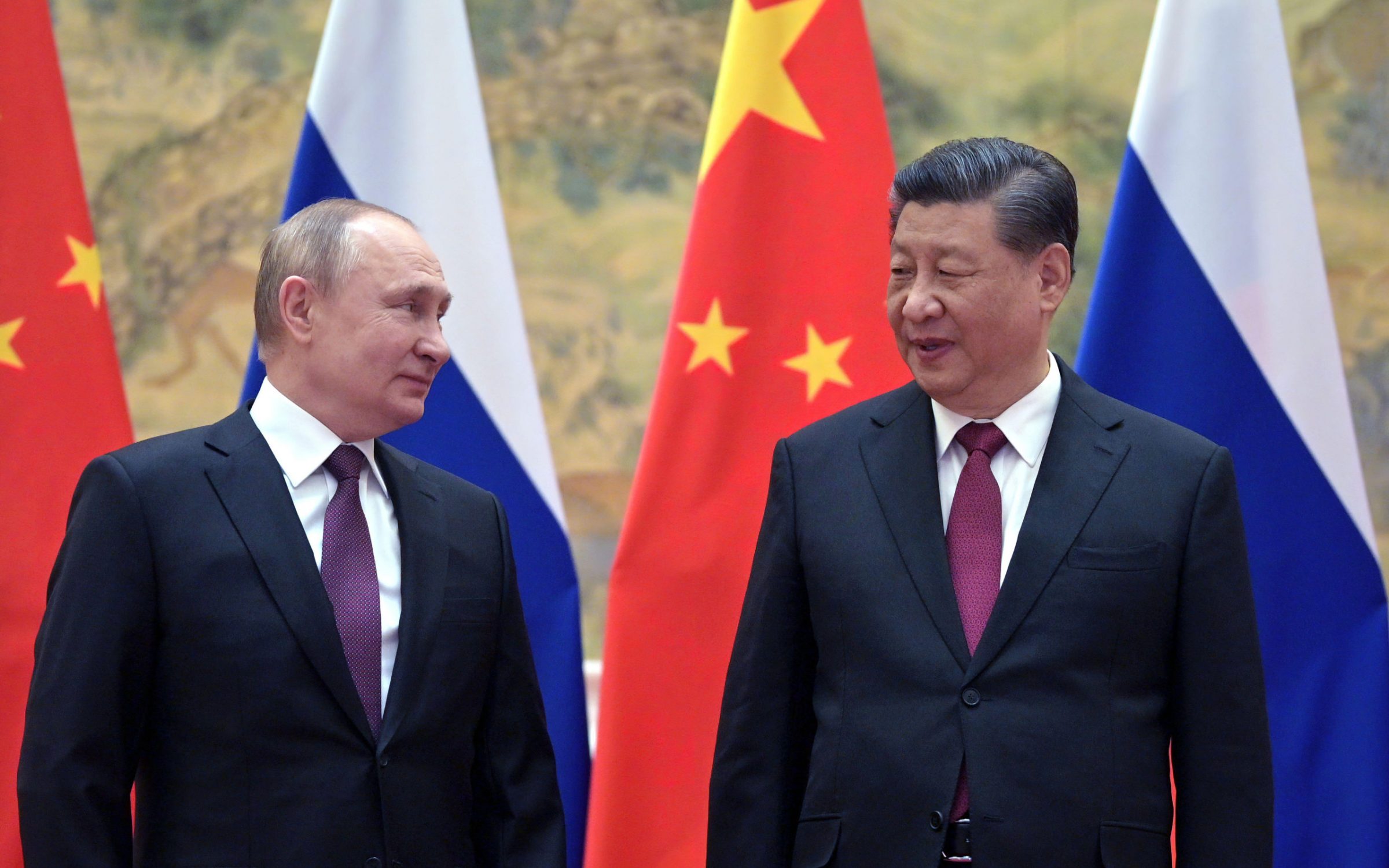US and Chinese diplomats met for top-level talks in Rome today, amid speculation that Moscow has asked Beijing to provide Russia with military equipment to support its invasion of Ukraine.
The talks between Jake Sullivan, US National Security Adviser, and Yang Jiechi, China’s senior diplomat, are the first in-person, high-level talks between the two countries since Vladimir Putin’s assault began. So far, there is no read-out of what transpired during the meeting.
Moscow’s purported military aid request has heightened fears that Beijing could be dragged into the conflict as Putin’s ally instead of persuading him to meaningfully engage with peace negotiations.
China and Russia are both denying that any such request was made but the US will no doubt be seeking firm reassurances today that Beijing will not be boosting Putin’s military stocks. More generally, the meeting is a chance for Sullivan to express frustration at the perceived lack of pressure China is placing on Putin to end the war.
According to a National Security Council spokesperson: “This meeting is taking place in the context of Russia’s unjustified and brutal war against Ukraine, and as China has aligned itself with Russia to advance their own vision of the world order.”
At present, China is posing as a neutral power and offering to act as a mediator in Ukraine-Russia peace negotiations. Yet its unwillingness to properly condemn Russia’s invasion has been widely interpreted as implicit support for Putin. Beijing has also denounced sanctions imposed on Moscow and abstained from a UN vote urging Russia to immediately stop its “aggression” in Ukraine.
As the conflict continues, China’s air of neutrality will become increasingly difficult to maintain. The superpower now faces a major strategic choice – and the path it chooses will impact the course of geopolitics for years to come.
Will Xi Jinping use his unique leverage over Putin to mediate an end to the conflict, or will he instead wade into the war with Russia by his side?
If he chooses the latter path, we will effectively find ourselves in a proxy war, with NATO supplying one side and Beijing the other.
The West might well respond by imposing sanctions on China, entirely re-shaping the global economy in the process.
Ominously, on the eve of the Winter Olympics in February, the Chinese President insisted that there were “no limits” to his “rock solid” friendship with his Russian counterpart.
That being said, Western sanctions would be hugely damaging to Beijing. China is heavily dependent on the SWIFT financial payments system, from which many Russian banks are now barred, severing their connection to the global economy.
A growing number of Chinese analysts are warning Xi that backing Putin will prove foolish in the long-term, unless, that is, Putin can secure a victory with China’s support – a prospect which, at the moment, looks bleak, says Hu Wei, chairman of Shanghai Public Policy Research Association.
If China instead persuades Putin to end the conflict, it will save itself from isolation, prove it is a responsible global power and gain widespread international praise for maintaining world peace. Wei adds: “China is the only country in the world with this capability, and it must give full play to this unique advantage.”





